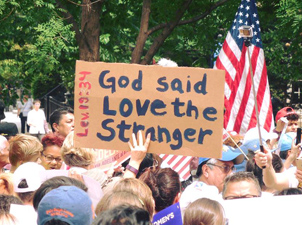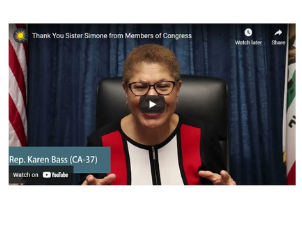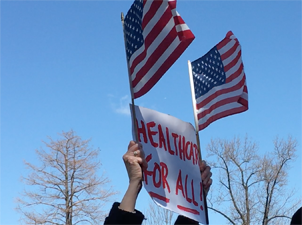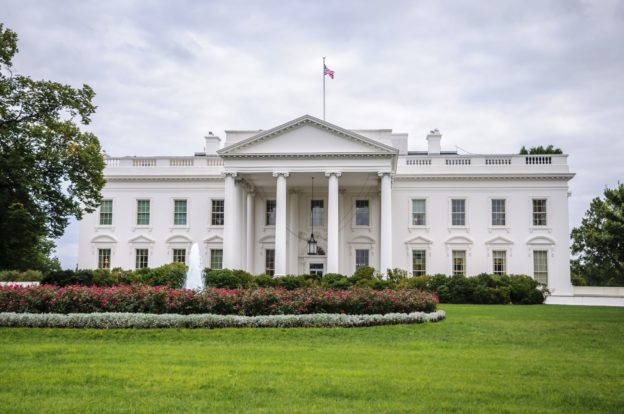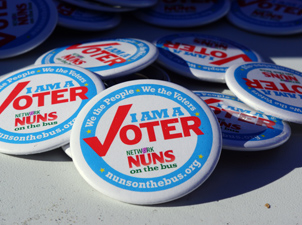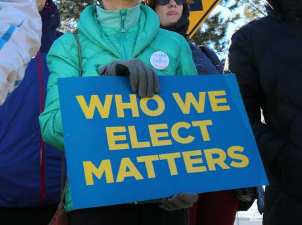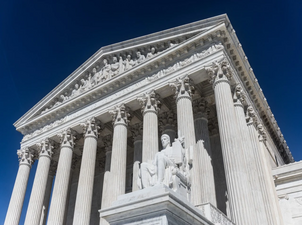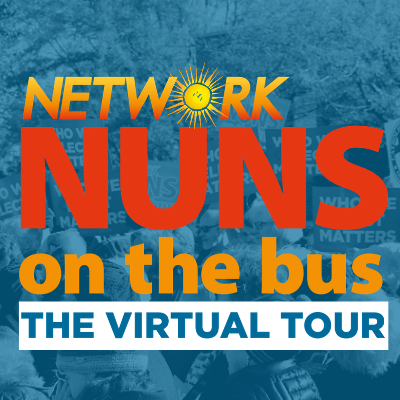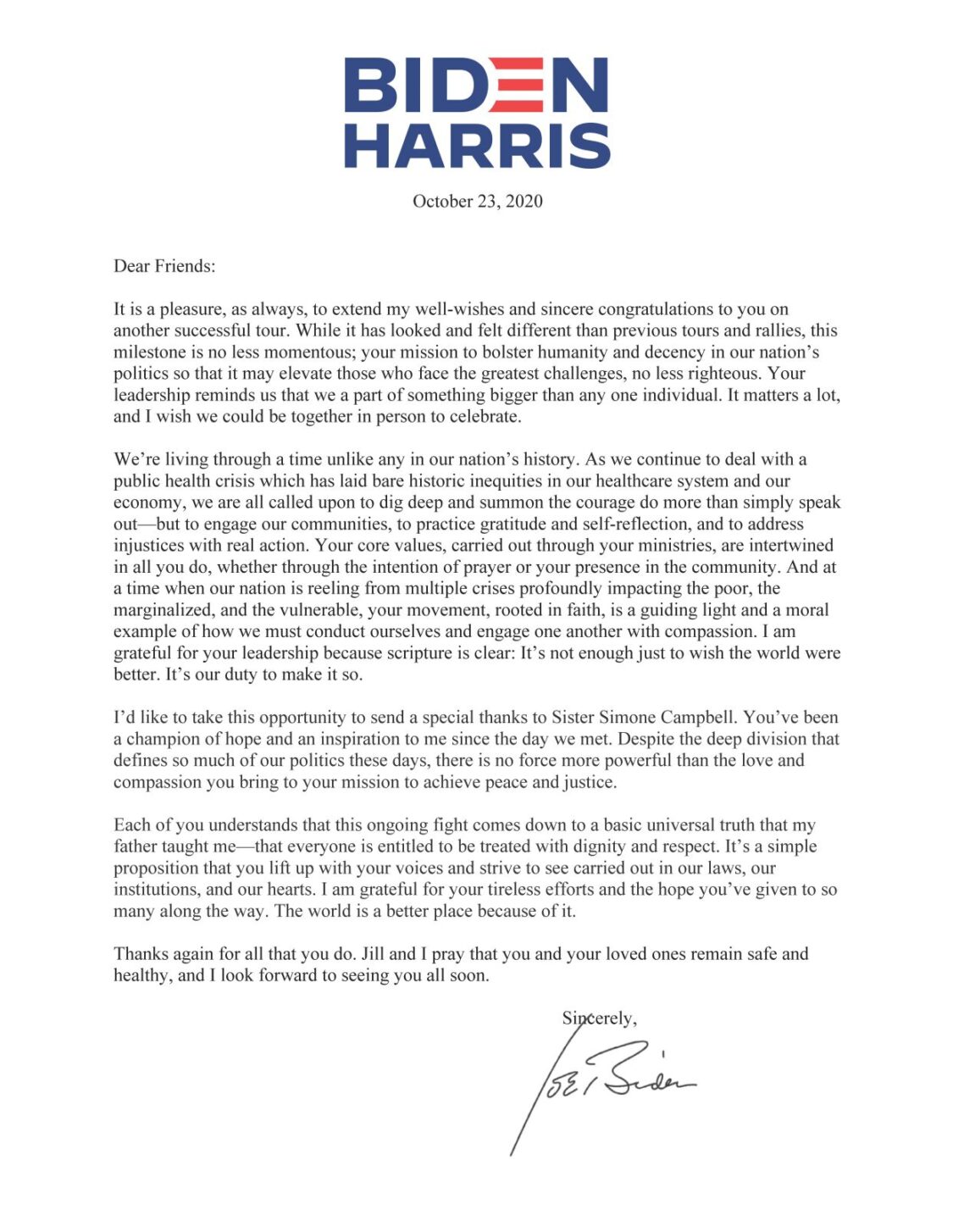
Called to Serve our Neighbors at the Border
Sr. Cecilia Cavanaugh, SSJ
July 15, 2021
In response to the Biden administration’s changes to federal policy at the U.S.-Mexico border this year, Catholic Sisters began traveling to the border to be of service to the influx of children and families entering the U.S. A few weeks ago, I traveled from Philadelphia, Pennsylvania to McAllen, Texas with three other Sisters of Saint Joseph of Philadelphia, one of our Associates in Mission, and two friends.
We, the Sisters of Saint Joseph have a special commitment to serving all people who we recognize as “dear neighbor” especially those who are most vulnerable. Eager to serve our dear neighbors migrating into the USA, this is my fourth experience accompanying migrants in their journeys. Being able to “connect some dots” between my past experiences and the present is helpful and inspiring. As I reflect on the first of my two weeks here in Texas, I’m increasingly grateful for encounters I’ve had in recent years.
Last year, another SSJ Sister and I spent ten days in McAllen. Because of the Trump administration’s “Migrant Protection Protocols,” the Center in Texas was almost empty. Instead, we often packed provisions and drove to Brownsville to cross the Río Grande into the refugee camp in Matamoros, Mexico. Walking through rows and rows of tents housing families in Matamoros, knowing that the policies of my country created these conditions, branded an indelible mark on my soul.
This week, our group visited another bridge and some wanted to cross. I could not. I realized that my experience witnessing families trapped in Matamoros last year was traumatic and that I’m still processing.
Now that policies are changing, hundreds and hundreds of people are being served daily. As overwhelming as my experience this year has been, there is a significant difference. There is movement. The families are on their way. Their hope energizes and lifts me up. I recognize my privilege and blessing in both scenarios. I want to be one with these dear neighbors and can bear witness to their experiences, but I will never share the extent of their pain, distress and trauma.
Last week, I listened to a woman describe the home she was forced to leave in Guatemala and assaults she and her sons experienced on the journey to the U.S. She anguished over finding her way to her sponsor and shuddered when she looked at her monitoring ankle bracelet. As she spoke, I remembered the simple but beautiful homes and subsistence farms I visited during a 2013 trip to Guatemala; the material poverty was in contrast to a deep sense of history, home, and community.
When I told her I could picture the homes in Guatemala, she burst out, “I miss my chickens. I miss my chickens.” I can’t stop repeating her words. Those animals represent so much about home, familiarity, and belonging. This person did not want to leave her home. I praised her resilience and bravery and promised her my prayer and that I would not forget her. Her story guarantees it.
Finally, I remember a week spent last March in Tierra Blanca, Veracruz with our Sisters of Saint Joseph of Lyon. I was visiting a shelter near a border where folks cross into Mexico, having already traveled through parts of Central America. I listened to interactions, heard stories, and learned more about their experiences. Having traveled that week from Philadelphia to Mexico City and then by bus and car to Tierra Blanca, I had a privileged view of the length of their journey.
We drove through train yards where dozens of men waited to jump on a passing train despite the danger from gangs threatening to extort them and the trains themselves, fast and unforgiving. Watching them leave the shelter in the morning and head out — to my country — I prayed that they would know a welcome after their long journeys. Now, I stand at the other end of that route here in the United States. I welcome my dear neighbors, offer clean clothing, necessities, encouragement, a smile. They set off again. I took a young woman and her toddler to the airport and tried to explain this new experience to her — security lines, what to do if her plane was late or canceled. I felt fearful imagining her layover. I watched her set out and prayed for her. Who will help her?
In his September 2020 message for the World Day of Migrants and Refugees, Pope Francis reminded us of our call to “welcome, protect, promote, and integrate” these valiant, vulnerable siblings of ours. He added six pairs of verbs: to know and understand, to be close to and serve, to be reconciled and listen, to grow and share, to be involved and promote, to cooperate, and to build. So much work of body, mind, and spirit! This cannot be completed or even undertaken over the course of a two-week volunteer stint. Rather, such effort must be undertaken by all of us in all the places where we live and minister. The journey does not end at our borders.







